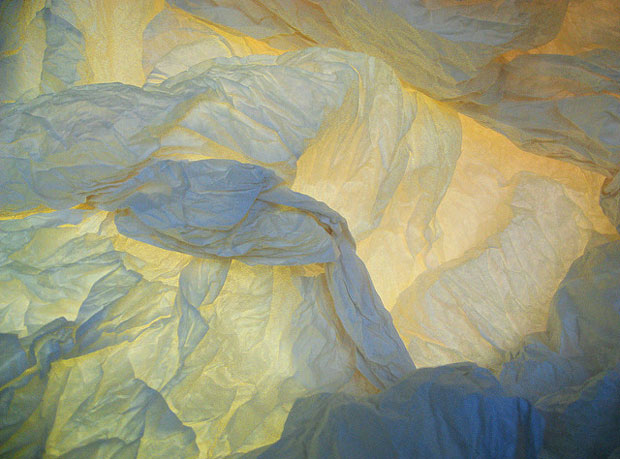I.
So this is
it. Is it
singular in itself
still, whole, inviolate
despite the many
depredations? You can
see slender branches
waving gently in
the dispensation of
the wind, ignorant
of all but
the essential. The
rustle of lightness
stirs the world.
Though few believe
it, there’s no
sin. Unspeakable atrocity
yes; ordinary cruelties,
yes; but no
sin. Even now,
the world’s impossibly
verdant & self-possessed.
In the whisperings
of a late autumnal
light, the pure
weight, the inertia,
the opacity of
the past, seems
like a distant
memory no longer
capable of arrowing
you. But that
you will be
arrowed is inescapable.
That’s the deal:
beauty holds out
many promises, many
balms, but it will
not save you.
II
Here, of course,
it’s only beauty
that can save you.
But salvation does
not come without
cost. Its uncanniness
must be lived,
thrilling, but deeply
uncomfortable, like visiting
a museum with
room after room
open to the sky,
full of streaming
sunlight, in
which paintings of
inexpressible beauty
just by being there
indict a lesser world.
Or when taking
a walk &
seeing –still alive!–
the artless, simple
Painted Trillium,
the simple Star
of Bethlehem, the
yellow & white
Alium, the violet
yellow & white
Dwarf Crested Iris,
testaments to
the flagrant beauty
we live with
without regard for
its delicate, salvational
force. True beauty,
it turns out,
is unendurable. Its
promise is too
painful, too immense
to rise to, the
possibilities too frightening.
It is comforting,
instead, to render
the world ugly,
beyond redemption. Here
paradise is the
unconsciousness, unknowable
but silently
framing what’s possible.
How many other
civilizations have
achieved our level
of despoliation, our
unregenerate ugliness?
We’ve replaced the
real with the
destructiveness
of the ideal.
The need to
forget then triumphs
over the imperative
to change. In
paradise, tragedies cannot
ever be seen.
III
In paradise, wants
& needs become
indistinguishable, making
it the culmination
of generations of
confused desire. Each
desire becomes layered
with new generations of
desire making it
palimpsestic. Therefore, the
culmination of everything
to be feared.
I want, for instance,
not an end
to the tawdry, but
a limit. I want
the feeling of
American vastness to
be accompanied by
intimacy. I want streets
of a new
dawn, not closed-
down glamour avenues
of dusk, the shopfront
displays radiant with
expense. I want
clocks in public
places with hands
that will go
backwards stopping
at moments of
singular possibility,
just to remember
what that is
like. I want
death to not be
a corrupt stranger.
I want cities
in which
art is more
than proof of
baroque wealth. I
want all the old
grand dreams of
the avant-garde
to be as
common & actual
as trash. I
want the ruins we
created honored
with pilgrimages.
I want trash
everywhere
to be luminous.
IV
Paradise means fear.
Fear that someone
will take it
away. Fear that
it was not
what was desired;
fear that it
will not be
what was desired.
Fear that what
is beautiful will
be subtracted from
your life, too.
Fear that it
is as beautiful as
it seems. A
nation can fantasize,
but fear &
desire start with
individuals. And what
you fear, you
can desire &
what you desire,
you’ll always fear.
To live in
paradise means
accepting a high
level of vulnerability
as the defining
condition of your
life. To be
vulnerable without ever
being able to
admit it is
to be condemned
to living a
kind of double
life, lived &
passed from generation
to generation, an inescapable
inheritance, unspoken but
expressed in the
language of gesture,
especially in our
fearful violence, which
despite its abject
unboundedness, is always,
among other things,
an unacknowledged plea
for forgiveness.
V
If I could remember
the scene completely
it’d be something
like this: evening,
and being
stuck on a highway
with hundreds of
other cars stopped
in traffic. But
the light, the
light was dazzling,
a glinting that
came from a
thousand reflections
shimmering off
glassfronts, a rejoinder
to the sun, less
the light of
transcendence & more
a reply to
nature, a testament
to what is, what
isn’t now
possible, as when
the traffic moved
again, & the
unified shimmering disappeared
& the moment
returned to the
quotidian, the
terror not in
the moment of
a thousand windshields
flickering & glinting,
but in the
banality of the
big-box chain-
stores that lined the
highway with all
the signs
pointing to other
signs, indifferent to
any other transaction.
Photo: “Crumpled Paper” by Sherrie Thai; licensed under CC BY 2.0 Click here to read Jon Thompson on the origin of the poem.
- TO PARADISE, I GIVE MY HALF-FORGOTTEN DREAMS - February 5, 2016



[…] Jon Thompson’s “To Paradise, I Give My Half-Forgotten Dreams” was recently published in Pangyrus (http://www.pangyrus.com/poetry/to-paradise-i-give-my-half-forgotten-dreams/). […]